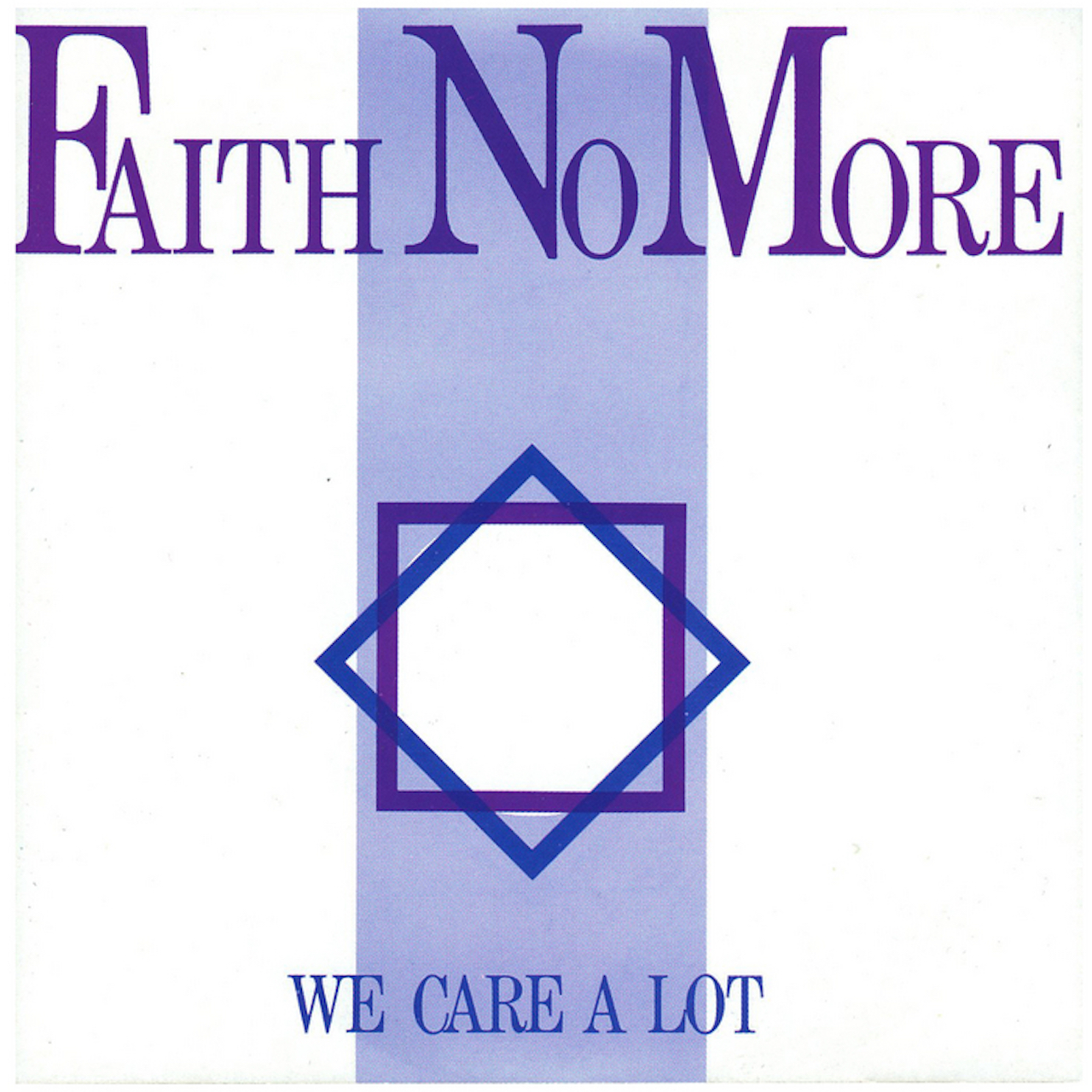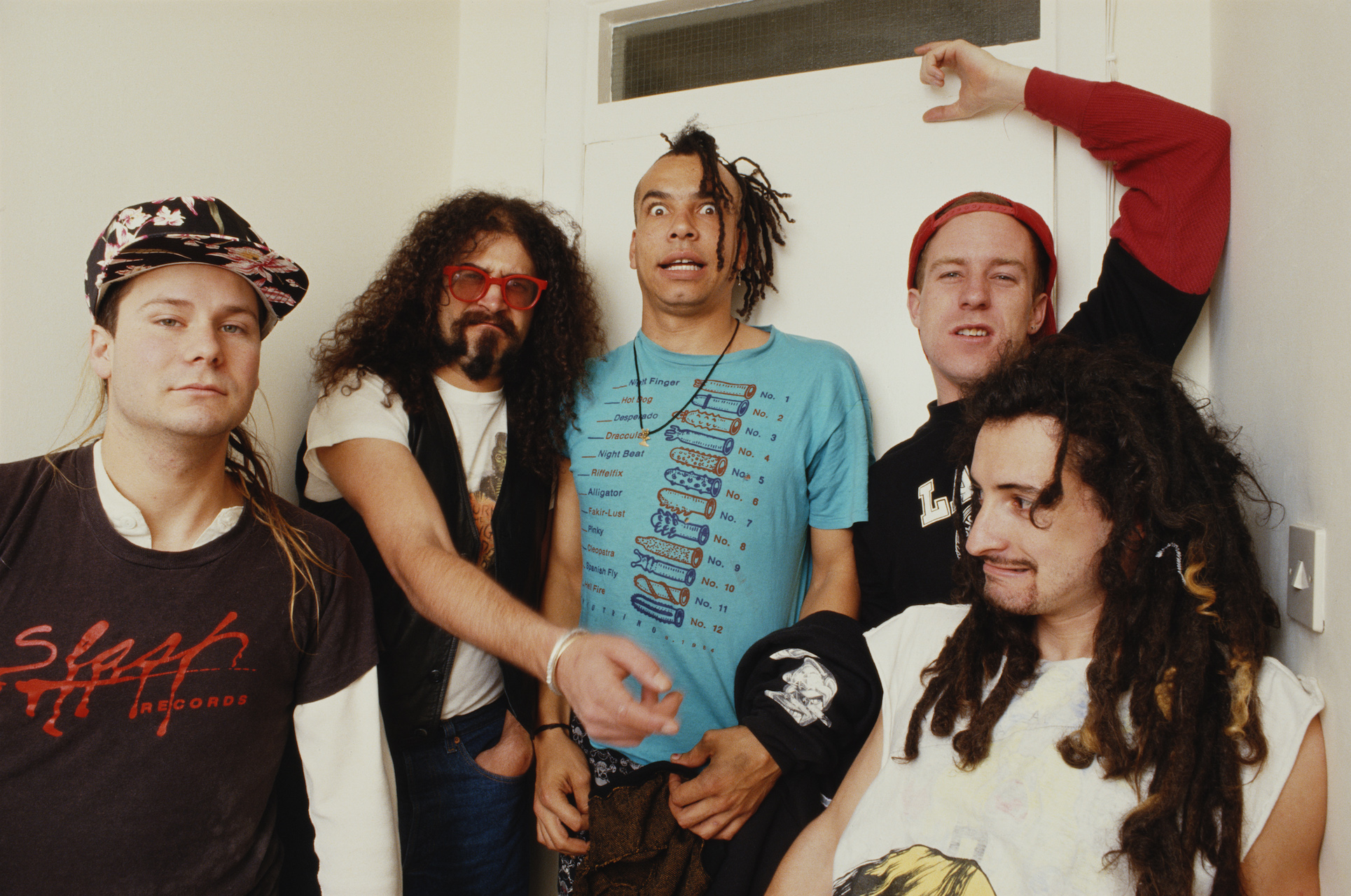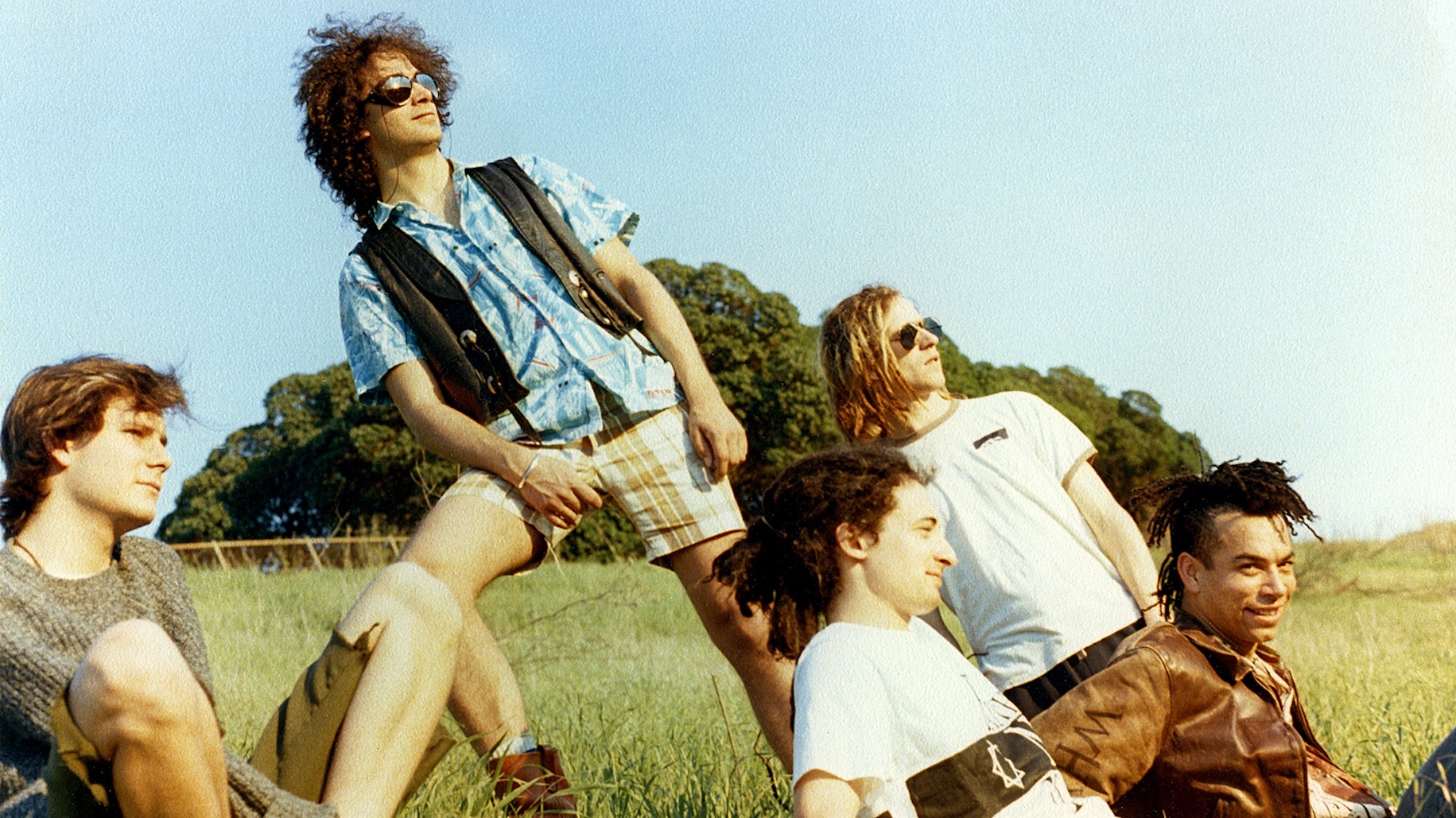In the summer of 1985, radio stations across the US began playing the debut single from a new band from San Francisco. Starship, formerly Jefferson Starship, were directly descended from Jefferson Airplane, one of America’s original counter-culture psychedelic rock bands, and We Built This City offered a nostalgic look at the music scene of the 1960s and ‘70s in ‘the city by the bay’, while simultaneously lambasting ‘The Man’ for riding his “wrecking ball into our guitars.”
“We just want to dance here, someone stole the stage,” sang vocalist Grace Slick. “They call us irresponsible, write us off the page.”
For a new generation of musicians in San Francisco, however, such sentiments were hard to swallow, if not down-right hypocritical.
“It’s funny,” says Faith No More bassist Bill Gould, “because Jefferson Starship were part of that old hippy music empire in San Francisco, the establishment who ran a music scene that none of my friends could relate to at all. They ran the clubs, they ran the media, they were the old guard who wouldn’t give up what they had. Our band, meanwhile, was part of the ‘Fuck Jefferson Starship’ generation.”
Gould and his best friend Roswell Christopher ‘Roddy’ Bottum, childhood neighbours from the prosperous Hancock Park district of Los Angeles, had moved to San Francisco in 1980 to attend college in Berkeley. Compared to the straight-laced, structured, suburban LA he knew, Gould found his new hometown free-spirited, open-minded and hugely stimulating, and, quickly ditching college, he gleefully dived headlong into the city’s “chaotic” art scene, answering an ad to join a band called Sharp Young Men placed by drummer Mike Bordin.
“Compared to LA, San Francisco was an amazing place,” he recalls. There was no real industry, it was just this giant wasteland with a million artists and a million bands, rent was cheap and it was a really interesting community. There was no pressing need for us to be a commercial band, and so the city was a good place to find yourself and learn who you are.”
The San Francisco rock music scene had diversified, and darkened, since The Summer Of Love, when artists such as Jefferson Airplane, The Grateful Dead, Moby Grape, Janis Joplin’s Big Brother and the Holding Company and psychedelic hard rockers Blue Cheer ruled the roost. When Gould and Bottum moved to the city by the Bay the likes of the Dead Kennedys, Romeo Void, Mutants, Offs and Pink Section were making jagged, aggressive punk and new wave sounds at the city’s infamous Deaf Club, and by the time Sharp Young Men released their debut/sole single, Quiet in Heaven/Song of Liberty, in 1983, a nascent Thrash metal scene spearheaded by Bay Area ‘bangers Exodus, Legacy and recently relocated LA blow-ins Metallica was beginning to attract national attention from tape-traders and fanzine writers.
“That early Thrash scene blew my mind,” says Bill Gould. “It was my gateway to get into rock and metal actually. I came from the punk school where long hair was definitely not cool, at all, but they made it cool. Bordin was friends with Metallica through Cliff [Burton] and so we became friends, and they introduced me to bands like Black Sabbath, who I just didn’t get into the first time around. It was a fun scene to be around.”
By the summer of 1983, Sharp Young Men were no more, but Gould and Bordin stuck together to form Faith No Man, soon rechristened Faith No More. Roddy Bottum replaced original keyboard player Wade Worthington, Chuck Mosley (formerly Gould’s bandmate in LA new wave act The Animated) was recruited on vocals, and Cliff Burton’s friend Jim Martin signed up to replace guitarist Mark Bowen in 1984 after Metallica’s bassist took him to see the band play at legendary punk club the Mabuhay Gardens.
Even in San Francisco’s diverse, eclectic rock scene, the music Faith No More made stood out like a drum solo at a Ramones gig. Gould and Bottum loved Killing Joke and PiL, Bordin was studying African rhythms at UC Berkeley, Martin was an unreconstructed metalhead and skate-punk Mosley improvised and scatted over whatever rumbling noise his bandmates erected behind him. “I wasn’t a singer, but I figured I couldn’t make it any worse than it already was,” Mosley later admitted. “I knew Billy was into chaos and aggression so I just fed off that and had a blast.”

“We didn’t really fit in anywhere,” says Gould, laughing. “When we started, our closest peers were a band called Glorious Din: we’d rent halls and put on shows together, because getting onto the established club circuit was tough. [Legendary SF promoter] Bill Graham still ran the local scene, and was pretty hardcore about shutting down punk clubs, even though that scene represented no threat to his world. It was hard for us to find our place initially: we were invisible in the media, and if we played to 40 people that was a good crowd for us. But, oddly, perhaps, we never doubted ourselves, we were very self-confident about what we had, always. We’d made eight track demos with our friend Matt Wallace, and sent them to all the clubs but nothing came back, so we were like ‘Well, there’s nothing wrong with the songs, so they probably just don’t like it because it doesn’t sound good enough.’ So that’s when we pooled our money to make a 24 track recording.”
In the summer of ’85, the band and Wallace decamped to Prairie Sun Studios in Petaluma, northern California with Matt Wallace to record a new five track demo, featuring the songs We Care A Lot, The Jungle, Mark Bowen, Why Do You Bother and Jim Martin’s classically-inspired solo instrumental, Jim.
“The studio was set up in a farm and it was free from any distractions,” says Gould. “We only had three days to record, because we only had so much money. Matt had a little eight track studio at home, but I don’t think he’d ever worked on 24 tracks before, so it was a new experience for all of us. We were very military about it, we did a lot of pre-production so that when we went in we didn’t waste a single second. There was zero fun: we just worked, slept on the floor and start recording again as soon as we woke up. We recorded everything in two days and mixed it on the third day.”
Back in SF, Gould passed a copy of the five song tape to his room-mate, who worked in a record shop. Ruth Schwartz, one of the original editors of punk fanzine maximumrocknroll, happened to be in the store one afternoon when the tape was playing, and she approached the desk to enquire which band was playing on the in-house stereo. Upon discovering that the band were unsigned, she placed a phone call to Gould, and Faith No More were duly dispatched back to Prairie Sun for a second weekend to record a second side for what would be their debut album for Schwartz’s new record label, Mordam. In November ’85, We Care A Lot became Mordam’s first release.
“Holding the test pressing for the first time was pretty cool,” says Gould. “And it was extra cool, because it was Mordam’s first record too, so Ruth Schwartz was as excited as we were. Having a record meant that we could tour, so we were off and running.”

A remastered, expanded ‘deluxe band edition’ of We Care A Lot, which has been out of print for 20 years, was released in 2016 be released on Gould’s own KoolArrow Records label, with sleeve notes by Roddy Bottum and photographs supplied by Mike Bordin. Today, the album still sounds like no-one else making music.
While the untutored singing style of Chuck Mosley - who sadly passed away in 2017 – may jar somewhat for FNM fans used to Mike Patton’s more polished tones, its striking just how directly the band’s unique, idiosyncratic sound as showcased on 2015’s brilliant Sol Invictus album can be traced back to its roots. Asked how he felt listening back to the album after dusting off the original studio tapes, Bill Gould says “a long enough time has passed now where I can listen to it without feeling embarrassed.”
“I mean, I think it’s a good record,” he insists, “but everything you do as a kid you’re later embarrassed about, it’s like looking at your high school pictures. When we transferred the tapes in the studio for the mastering and I heard the songs through the monitors I was amazed at how good it sounded, it impressed me actually, because at the time, in my mind, we were such stupid kids.
“When I think back on that time, my initial memory is how exciting things were, but if I think about it really, it was a complete slog! We were broke, and just trying to survive, with this really weird music that we were so stubborn about sticking to. It was pretty much a miserable existence, and we were so hard on one another. But when I hear the music now, I feel a lot of good energy.”
Originally published in 2016

